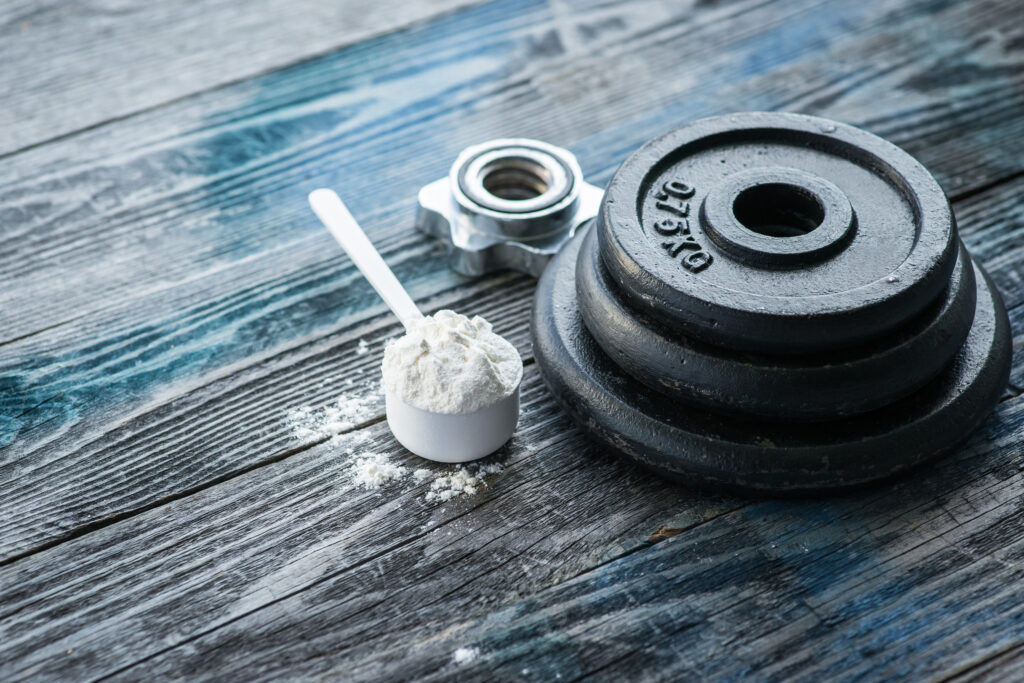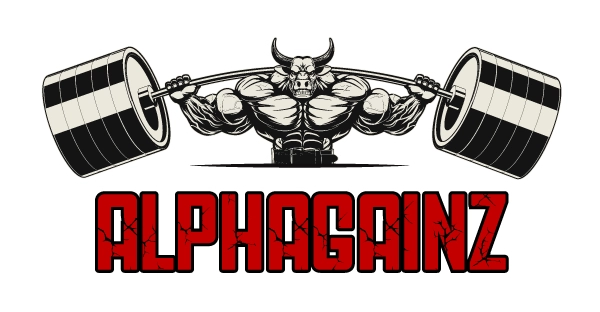Unlike many flashy and overhyped supplements, creatine stands out as one of the most researched, effective, and affordable performance-enhancing substances on the market. Backed by decades of peer-reviewed research, creatine not only supports strength and muscle gains but also offers significant cognitive and health benefits—making it one of the few supplements truly worth purchasing.
Creatine is a naturally occurring compound found in small amounts in foods like red meat and synthesized by the body in the liver, kidneys, and pancreas. It helps regenerate adenosine triphosphate (ATP), the body’s primary energy currency, during high-intensity exercise. Supplementation increases phosphocreatine stores in muscle, allowing for improved performance in strength training, sprinting, and other explosive activities.

Creatine for Major Gains
Creatine is one of the most thoroughly researched and effective supplements for enhancing muscle performance—and the science backs it up. A comprehensive meta-analysis published in Medicine & Science in Sports & Exercise reported that creatine supplementation can boost maximal strength and power output by an average of 5–15% (Rawson & Volek, 2003). Likewise, a detailed review from the Journal of the International Society of Sports Nutrition concluded that creatine supports significant gains in lean muscle mass while also enhancing muscular endurance and accelerating recovery (Kreider et al., 2017). For serious athletes and lifters dedicated to building strength and improving body composition, creatine remains one of the most powerful and proven performance enhancers available.
But creatine’s value extends well beyond the weight room. Emerging research continues to uncover a wide range of cognitive and neurological benefits. A study in Psychopharmacology found that creatine supplementation improved working memory and intelligence test scores in healthy adults, particularly during periods of sleep deprivation (Rae et al., 2003). Additionally, studies have shown creatine’s potential neuroprotective effects, with early evidence suggesting it may help manage neurodegenerative conditions such as Parkinson’s disease and ALS by supporting brain energy metabolism and cellular integrity (Bender & Klopstock, 2016).
In short, creatine isn’t just a muscle-building powerhouse—it’s a versatile supplement with benefits that reach from peak athletic performance to brain health and longevity.Unlike most performance supplements, creatine has a well-established safety profile. The International Society of Sports Nutrition states that creatine is one of the most extensively studied supplements in the world and is both safe and effective when taken at recommended doses—even over long periods (Kreider et al., 2017). Side effects such as bloating or water retention are minimal and typically subside with consistent use or when transitioning to lower daily maintenance doses (~3–5g/day).
Creatine is also incredibly cost-effective. A standard 500g tub of creatine monohydrate—enough for over 3 months—often costs under $30. That’s less than 30 cents per day for a supplement that can enhance performance, brain health, and muscular development. Compared to overpriced, underperforming options like BCAAs or fat burners, creatine offers a return on investment few others can match.
In conclusion, creatine isn’t limited to just bodybuilders or elite-level athletes—it’s a well-researched, versatile supplement that offers a wide array of benefits for nearly everyone. Backed by decades of scientific studies, creatine has proven effective not only for enhancing physical performance but also for supporting brain health, improving cognitive function, and promoting overall wellness.
Whether you’re a weekend warrior, a student looking to stay sharp, someone working to preserve muscle as you age, or an athlete striving for peak output, creatine has something to offer. Its safety profile, affordability, and broad-spectrum benefits make it one of the most valuable and accessible supplements on the market.
If you’re looking to add just one supplement to your routine that delivers consistent, measurable results across both mind and body, creatine monohydrate stands out as the top choice. It’s not hype—it’s science.
References:
Bender, A., & Klopstock, T. (2016). Creatine for neuroprotection in neurodegenerative disease: End of story? Amino Acids, 48(8), 1929–1940. https://doi.org/10.1007/s00726-016-2220-5
Kreider, R. B., Kalman, D. S., Antonio, J., Ziegenfuss, T. N., Wildman, R., Collins, R., & Lopez, H. L. (2017). International Society of Sports Nutrition position stand: safety and efficacy of creatine supplementation in exercise, sport, and medicine. Journal of the International Society of Sports Nutrition, 14, 18. https://doi.org/10.1186/s12970-017-0173-z
Rae, C., Digney, A. L., McEwan, S. R., & Bates, T. C. (2003). Oral creatine monohydrate supplementation improves brain performance: a double–blind, placebo–controlled, cross–over trial. Psychopharmacology, 167(3), 243–249. https://doi.org/10.1007/s00213-003-1349-6
Rawson, E. S., & Volek, J. S. (2003). Effects of creatine supplementation and resistance training on muscle strength and weightlifting performance. Medicine & Science in Sports & Exercise, 35(6), 944–951. https://doi.org/10.1249/01.MSS.0000069753.67467.7F





